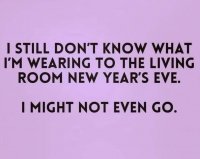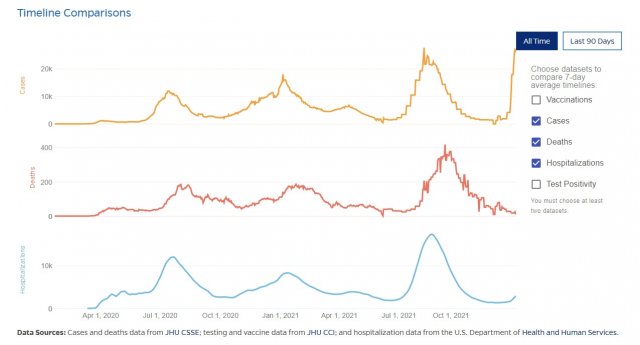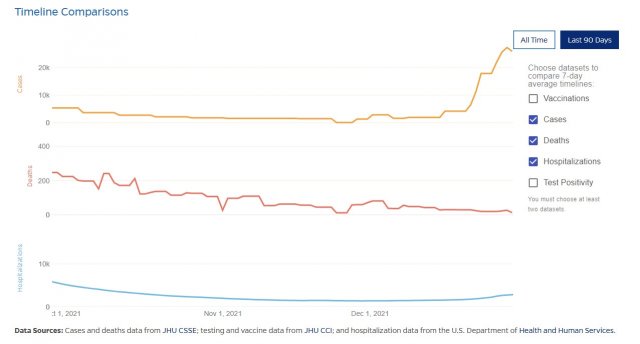Our city has long been in the forefront of innovation when it comes to wastewater treatment. I'm proud of Altamonte Springs. The latest news, however, has me puzzled.
They're now testing our wastewater for evidence of COVID-19 infections.
Actually, I think that sounds clever. It's the results I question. According to this news story, 70% percent of our residents are infected with COVID-19.
Seventy percent! Does that make any sense at all? Later in the same story, it is claimed that half of the people getting tested are positive.
Wait just a minute. Who is it who gets tested? I know that some folks submit to testing, sick or not, because of their jobs, their travel plans, or because they've gone into the hospital with a broken leg and been tested for COVID because that's what hospitals do. But generally speaking, the people who bother to get tested are those who are experiencing some symptoms of illness. Those of us who think we are healthy don't bother.
So how is it that 70% of us actually have COVID when the tests, heavily weighted towards those who know they are sick, are only coming in at 50%?
All I can think of is that the COVID tests, or being ill with something other than COVID, or even breaking your leg, is somehow protective against the COVID-19 virus itself.
This may be a strange disease, but come on, it's not that strange.
I thought I'd already published my New Year's Eve post, but this heartbreaking news from Quebec demands publicity. For those who don't want to watch the 11-minute video, I've put a short summary afterwards.
Quebec has been iron-fisted from the beginning in its reaction to COVID-19, with tight lockdowns, cancellations, closures, severe restrictions on gatherings in private homes, travel bans, strong vaccine-passport requirements, and even a harsh, five-month curfew.
After much suffering on the part of the Quebec citizenry, the curfew was lifted and the choke-hold on the province's economy and family life began to ease, just a little. Enough for people and businesses to start making plans again.
Until yesterday.
That's when the provincial government announced new extrememe measures in the light of Omicron, the newest COVID variant. These include
- reinstated curfew
- take-out only for restaurants
- no private gatherings in your own home
- in-person school shut down at least until mid-January
And when do these measures take effect? At 5 p.m. today.
Today. New Year's Eve.
Now, I'm not one to go crazy on New Year's Eve. This image I found on Facebook sums it up pretty well for us these days.
But I realize that for many people the New Year's Eve festivities are important. They make plans, they travel, they spend lots of money on clothes and event tickets and parties and food and special restaurant meals. Restaurants, event venues, musicians, caterers and loads of other businesses count on this time to keep them financially afloat.
The decree comes out with one day's notice, and is clearly calculated to pull the rug right out from all New Year's Eve festivities. Plans are already made, tickets purchased, food bought, extra help hired ... then nothing. And all in fear of a COVID variant that has been producing high numbers but is almost always a mild illness with very low hospitalization and death rates.
This is not just tyrannical. It is sadistic.
I wouldn't go so far as to call it Fascist. But it is certainly Faucist.*
We cannot continue to ignore the economic, social, and mental health consequences of these extreme measures.
(Sorry this post is so depressing. My first post of the new year will be more delightful and uplifting.)
*Porter gets credit for this term, but I've latched onto it enthusiastically.
I'm not sure why my husband insists on sharing the news he reads from major media outlets (mostly BBC News, Orlando Sentinel, National Public Radio). Perhaps he (correctly) believes I need to be better informed. Maybe he just wants someone to commiserate, in which case, well, that's part of my job. :) On the other hand, he may just like providing me with blog fodder.
In any case, what I'm hearing is a lot more sound and fury and flame-throwing than is good for my mental health. You'd think we were facing the end of the world with this Omicron COVID variant. It's true that we're hearing about a lot more cases among our friends and family these days, due I suspect to both the greater contagiousness of Omicron and the fact that people are going about their lives more freely than they were before.
I know better than to panic just because those who profit from panic are fanning the flames, but I was intrigued enough to revisit the Johns Hopkins site to see how Florida is doing, by the numbers. Here's what I found. (Click images to enlarge.)
Positive cases, deaths, and hospitalizations over all time
Positive cases, deaths, and hospitalizations over the last 90 days
Hospital bed/ICU occupancy
If you look at just the case rate, you might think something terrible is happening. But looking at the corresponding death and hospitalization rates, and the availability of hospital services, I can't see it as anything other than great news. Bear in mind that my medical "expertise" comes only from being the computer geek in a pathology research lab, and from interacting with this world for nearly 70 years. In other words, it's just my opinion. But I'm convinced that an increasing number of mild cases means we're interacting with this disease in a more natural way that could encourage it to mutate into something we can live with.
Cases are up, but deaths are down, and hospitals have plenty of room. I can handle that.
It wasn't the Christmas they expected.
The shepherds weren't expecting anything. The Wise Men (who came later) might not have been surprised that the king they were seeking was a young child, but they probably didn't expect to find him in such humble surroundings. Herod wasn't expecting him, though he certainly knew how reigning kings dealt with potential rivals: Off with their heads!
Mary (and Joseph) did know, having been clued in by an angel, but I'll bet Gabriel didn't bother to include the messy details, such as going into labor away from home, at the end of a long and difficult journey to a crowded city with limited accommodations.
Despite innumerable clues throughout their history to the coming of a savior who would put everything right—albeit less clear at the time than in hindsight, of course—the religious scholars in Israel saw nothing momentous about the events. This despite having told the above-mentioned Eastern sages that they should go to Bethlehem to look for the Messiah. As was shown some 33 years later, their ideas of "put everything right" had some major misalignments with God's own; we tend to see what we are looking for.
There's a long history of Christmas not being what people expect, so I should not have been surprised that Christmas 2021 wasn't the Christmas WE expected.
In this year's Christmas newsletter, I included this line: "Sub conditione jacobaea, we will make a fifth trip, to Connecticut, before the end of the year for another family gathering." The Latin phrase is the more formal equivalent of the Southern, "Lord willin' and the creek don't rise."
The creek rose. Or rather, COVID rose. As in, two of the people we'd planned to spend Christmas with tested positive. We reflected: (1) people who are sick do not generally welcome houseguests, (2) if one is going to get sick, home is usually the best place to be, and (3) the threat of isolation and quarantine could turn a 10-day visit into 20 or more, especially if one is flying. Then we made the painful decision to cancel the visit. :( Instead of flying out early Christmas morning, we were going to be home.
Two days before Christmas I crossed "pack suitcase" of my list and added "buy a roast for Christmas dinner." We did not have a tree, but I stopped by the Home Depot tent and picked up some of their tree trimmings to add some festive and aromatic greens to our hastily-decorated substitute:
I only drove to three places that day—the post office, Target, and Publix—but came home exhausted. As I said to Porter while he was helping me unload the car, "You'll know how crowded it was when I say I elected to wear my mask everywhere I went."
Christmas Eve wasn't as planned, either, as our pastor's wife had also come down with COVID. The CDC protocols do not require vaccinated people to quarantine, but our diocesan rules are stricter, so he was suddenly out of the picture, which cancelled some of our services and altered the others. Amazingly, they found a substitute priest for Christmas Eve and Sunday, though not for Christmas itself. Nonetheless we are grateful that the bishop didn't revoke his permission for choirs to sing without masks! All things considered, it was still a lovely service, though for us the really festive celebration had been our mid-month Lessons & Carols. (Too many of our choir members travel out of town for Christmas, for us to be able to plan anything big closer to the Day.)
Since the Christmas Eve service began well after my normal bedtime, and, unlike last year we had no children around to inspire an early arising, we slept in on Christmas Day (That is, to about 7 a.m.).
Our Christmas breakfast usually includes traditional Dutch almond raisin bread and banket. Often we order these from Vander Veens' Dutch store, but this year I convinced myself that it's cheaper and better to make them myself. (I was right.) I did buy the almond paste from Vander Veen's (much less expensive than I can find at the grocery store), but our grandson makes his own from scratch, so I might try that sometime. I doubt I'll go through the effort of making my own puff pastry, however; Pepperidge Farm does a great job with that.
No one complained that the "banket letters" were selfish this year—all I's.
The day was a quiet one, spent opening presents, talking with family, and reading. Porter read one of my Christmas present books, and I continued reading Oathbringer, which I intend to complete before the Twelve Days are over! (I'm currently 2/3 of the way through the 1200+ pages.) I did manage to cook Christmas dinner in there somewhere, and it was good (especially the gravy), but I couldn't help noting that it didn't hold a candle to my brother's Christmas roast beef, which we had been anticipating.
The Second Day of Christmas was Sunday, and we went to church. If attendance was about as expected for the day after Christmas, at least the choir did not outnumber the congregation. And we had enough choristers to sing Vivaldi's Gloria!
I hope you are all enjoying a very good Christmastide.
Even if it might not be the Christmas you planned on.
Those who are smart and protecting themselves need to continue doing their best to protect themselves and their loved ones.
I found this in a comment on a friend's Facebook post. One advantage of information overload is that such comments quickly become "anonymized information" in my brain, protecting the innocent and the guilty alike.
What struck me about this statement, with which I heartily agree, is what it tells me about how much we are alike. We all want to protect ourselves and our loved ones, and most of us have opinions as to how best to do that.
It is in the means, not the ends, that we disagree.
Some people move to rural areas and learn to farm. Some organize and join unions. Some purchase and learn to use guns. Others choose to homeschool, or to take political action, or to stockpile food and other essentials. Some work hard to strengthen family and community ties, or to attend to their own physical fitness, or to build up a strong financial base. And some people get vaccinated against COVID-19. Many choose more than one of these paths.
The writer of the Facebook comment was specifically speaking of COVID-19 vaccination, which I certainly consider to be a valid way of choosing to protect oneself and one's family. Unfortunately, the context of the above quotation wasn't as reasonable.
I know this is callous, but those who are smart and protecting themselves need to continue doing their best to protect themselves and their loved ones. What happens to those who do not care, is no longer taking up my headspace.
Just as the excerpt epitomizes what we have in common, the context shows what is dividing us. Because by "those who do not care," the writer appears to mean those who choose not to follow his own particular choices. Possibly, he's expressing his willingness to leave them alone to make their own decisions. But the callousness, which he admits, contains the implication that he considers doing them harm to be a valid part of protecting himself.
That is very dangerous ground indeed. We can do better.
Permalink | Read 1054 times | Comments (0)
Category Hurricanes and Such: [first] [previous] [next] [newest] Health: [first] [previous] [next] [newest] Politics: [first] [previous] [next] [newest] Random Musings: [first] [previous] [next] [newest]
I've always had a problem with headlines, which all too often distort or even contradict the content of the story they purport to summarize. It's similar to my frustration with book covers that make me wonder if the artist actually read the book itself. Even knowing this, it's all too easy to judge a book by its cover and to get our news from the screaming headlines. To get any useful information, we have to dig deeper.
On the other hand, it's possible that our State Department has simply gone mad.
One of Porter's travel websites led him to the handy(?) State Department website for its current travel advisories: a categorization of the world's countries into
- Level 1 Exercise normal precautions
- Level 2 Exercise increased caution
- Level 3 Reconsider travel
- Level 4 Do not travel
A glance at the associated map reveals that we consider the rest of the world to be a very, very dangerous place and should probably just stay within our own borders. There are thirteen places marked Level 1, the safest level, including Paraguay, Bhutan, Kyrgyzstan, Kuwait, the United Arab Emirates, Zambia, and Togo. Not exactly places high on my list of comfortable vacation destinations. Perhaps we should go back to The Gambia; our Gambian friends can take comfort in knowing that their country is one of those few getting our State Department's blessing, along with neighboring Senegal.
On the other hand, Switzerland is Level 4. Do. Not. Travel. More than 300 other countries are given this worst possible rating, include North Korea, Afghanistan, and the Central African Republic.
I am a lot happier that our daughter and her family are in Switzerland rather than North Korea, Afghanistan, or the Central African Republic. What do you think?
Fortunately, the website allows you to click on individual countries and get more detailed information about the advisories.
- Do not travel to North Korea due to COVID-19 and the serious risk of arrest and long-term detention of U.S. nationals.
- Do not travel to Afghanistan due to civil unrest, armed conflict, crime, terrorism, kidnapping, and COVID-19.
- Do not travel to the Central African Republic due to COVID-19, Embassy Bangui’s limited capacity to provide support to U.S. citizens, crime, civil unrest, and kidnapping.
- Do not travel to Switzerland due to COVID-19.
Methinks our State Department could do with a finer gradation of the Level 4 warning.
Here's another interesting anomaly: Liechtenstein has a travel advisory rating of Level 3. So if you can get there, you are considered safer than in neighboring Switzerland or Austria, each at Level 4. However, they make no suggestions as to how one might get to Liechtenstein without travelling through either Switzerland or Austria, given that Liechtenstein has no airport (though they do have a helipad). Perhaps one could parachute in, though that does introduce risks of its own.
Recently I re-read The Light in the Forest, a book from my childhood, though I hardly needed to read the whole book to find the passage I quote below. I could almost have quoted it from the memory of my first reading some sixty years ago.
These are the words of an old slave, in colonial America, explaining how easy it is for those born free to lose their liberty.
Every day they drop another fine strap around you. Little by little they buckle you up so you don't feel it too much at one time. Sooner or later they have you all hitched up, but you've got so used to it by that time you hardly know it.
There was no reason the day should have been unusual.
It began with a phone conversation with a good friend, and ended with choir practice. In between, I ran errands: to Jo-Ann's for a new sweatshirt, to the library for a couple of books, one by Brandon Sanderson and the other by Scott Adams. Finally, I ended up at the grocery store, for—well, for all those things you can get at a grocery store. Nothing unusual.
Errands don't generally put me in a good mood. Perhaps these should have, because they were 100% successful for a change, but that's not why I came home euphoric.
People were smiling. They were laughing. They were joking with one another. Just as we used to do before masks covered our faces and suspicion darkened our hearts.
This battle isn't over yet. But it was a good day.
Permalink | Read 1015 times | Comments (0)
Category Hurricanes and Such: [first] [previous] [next] [newest] Everyday Life: [first] [previous] [next] [newest]
As I wrote before, we recently made our first airplane voyage since before the start of the pandemic. I was surprised at how rusty we were in what used to be accustomed procedure!
Overall, I was impressed, as I usually am, by Southwest Airlines. We flew during their recent—and never satisfactorily explained—outage, and our outbound flights were cancelled. However, we were automatically rebooked, within minutes of that notification, on a flight that left later the same day and arrived at our destination earlier, a much better situation for us. Between that and having automatic TSA Precheck, our airport experiences were problem-free. And I'm very happy about the improved cleaning and air filtration procedures, since in my experience an airplane is nearly as dangerous as an elementary school when it comes to challenges to the immune system. That part of the flight felt good.
Not that we had all that much chance to experience the new, fresher air, as masks were required to be worn at all times, even between bites and sips while eating and drinking. Fortunately, the between bites part was not aggressively enforced, but neither was there all that much opportunity for eating and drinking.
I can handle a mask, when necessary, for short shopping trips, and can make it through a choir rehearsal or a church service, albeit with difficulty. If I had to wear a mask for my job, I'd be applying for a medical exemption. I have no disability other than age, but that was good enough to get me priority for the vaccine, so maybe it would work. Fortunately, employment is not an issue.
Wearing a mask for the trip was hard. Ours was a relatively short flight, but that was three hours, and of course you have to add in the airport time on either end. Still, we managed all right, as far as I could tell.
The scary part was on the flight home, when I had the elbow room to use the sensor on my phone to check my blood oxygen. I know I'm good at sleeping on airplanes, but I couldn't stay awake to read a very interesting novel, and that concerned me. The sensor on my phone is hardly as accurate as a medical pulse oximeter, but there has to be something wrong about the fact that it consistently reads between 95% and 100% at home (usually on the high side of that), and my readings on the plane were between 84% and 90%! Pulling the mask away from my face for several breaths got it up to between 93% and 97%. But for how long had I been in the danger zone? Was the problem due to wearing the mask, or the altitude, or a combination? All I know is that when I got back home the numbers were up to 97%-100% again.
I'm trying not to think too much about the fact that our overseas family, including small children, had to endure two very long transatlantic flights for their Christmas visit here, and were forced to wear medical masks because their own cloth masks—similar to mine—were deemed to allow too much air exchange.
This won't stop me from flying again, even overseas when that is allowed. Family is too important. But at my age I need all the brain cells I can keep. Who doesn't, at any age? (That's one reason I avoid anesthesia whenever possible.) I'm more and more convinced that the harmful effects of our pandemic regulations are only just beginning to be felt.
It's about time for another word from my favorite Canadian lawyer, who is struggling to balance principles and parenthood. (12-minute video)
Maybe it's a good thing that my only Australian source concentrates on cooking. I hear the situation is even worse there.
Permalink | Read 953 times | Comments (0)
Category Hurricanes and Such: [first] [previous] [next] [newest]
Southwest Airlines has been getting some bad press recently, but we've recently had a wonderful experience.
I'm very disappointed that they caved in to pressure to implement a vaccine mandate for their employees. I would have respected them much, much more if they could have held out against this wrongful policy.
That said, I was impressed, and pleasantly surprised, by what happened to us.
We were scheduled to fly Southwest, and more than a little concerned about their recent cancellations, especially the news stories of people waiting several hours to get help, and not being able to reschedule any sooner than three days away.
Sure enough, the night before we were scheduled to fly, we received notice that our flight was one of the ones that was cancelled. Before we could even get through to the Southwest website, however, we receive another notification:
We have rebooked your flight for you.
Not only did it happen quickly, and with no effort on our part, but they had actually put us on a better flight than the one that was cancelled. It left three hours later, giving us a more comfortable start, yet arrived at our destination an hour earlier, because it was a direct flight instead of requiring a plane change in Baltimore. True, our new flight was packed to the gills and we were among the last five people to board the plane, but at that point we felt nothing but gratitude.
Kudos to Southwest for making a potentially terrible situation into something almost pleasant.
And many thanks to all of you who prayed for our trip!
My constant prayer since the start of the development of the COVID-19 vaccines has been that the knowledge gained would lead to an effective vaccine against malaria.
When I last checked the Johns Hopkins site, the total estimate of COVID-19 cases since we started keeping track have been a little less than 237 million. (Just how accurate that guess is, is another issue.)
In that time period, there have been approximately 382 million cases of malaria, a debilitating disease that cripples economies, and preferentially kills young children.
But there is good news. While there is still much room for new vaccine-development techniques to improve the situation, there is now a vaccine for malaria. It was developed by GlaxoSmithKline* and proven effective six years ago. Finally, after futher testing, has been given the green light for mass vaccinations in sub-Saharan Africa.
"Effective," in this case, is only 40%—I said there was room for improvement—and requires a series of four shots, given at five, six, seven, and 18 months of age. In a part of the world where health care is often less than stellar, I imagine this will be a challenge to implement. But malaria is a much trickier disease than, say, COVID ("comparing them is like comparing a person and a cabbage") and this is a huge milestone.
It causes all, both small and great, both rich and poor, both free and slave, to be marked on the right hand or the forehead, so that no one can buy or sell unless he has the mark. — Revelation 13:16-17
College is a time for wide-ranging, speculative discussions, and among my fellow students in the early 1970's this Bible verse was a popular topic. We were hard-pressed to imagine a world in which people would consent to having marks imposed on their bodies: tattoos were so rare that most of us had never seen one, and the now-common practice of implanting informative microchips in pets was 15 years in the future. The microchip itself had barely made any impression on our lives—my choice when doing my physics homework was between long, laborious hand calculations and a long trek through the snow to a small room where half a dozen chunky, very basic calculators had been made available to students.
Even more puzzling was how having or not having this "mark of the beast" could be the gateway to commerce. The marketplace still ran on cash and checks.
How much can change in 50 years.
Suddenly, in Canada, in Australia, in Switzerland, and in parts of the United States, the marketplace and much more are now gated by vaccination status. Society has been divided as by a sharp sword between the haves and the have-nots; the clean and the unclean; the ones who are free to travel, attend school, eat at restaurants, and even hold their jobs, and those who are not.
I am not saying that the COVID-19 vaccine is the Mark of the Beast. It seems clear that the Mark will involve some form of blasphemy and idolatrous worship, and this does not—although, frankly, the efforts to invalidate religious exemptions to vaccine mandates have me wondering a bit about that.
However, it is now crystal clear is that what seemed impossibly fanciful back in my college days is not only possible, but can sweep over even a free and democratic country with little effective opposition. Whatever that Mark may be, we have opened the door.
I'm overwhelmed with all the news that begs comment and threatens to overwhelm the ordinary life events that I like to post for family and friends. This one pops to the top of the backlog because it is good news, and we can always do with some of that.
The story started in March 2020, when a 16-year-old high school student went on a trip with her band to Disney World in Florida. Nothing unusual about that: it happens evey year, from all over the country. Our kids did it with their band—though they didn't have so far to go. In fact, my siblings did the same thing, coming from Pennsylvania, some 40 years ago.
But this was early 2020, and a week after returning, the girl came down with symptoms that caused her doctors to believe she had COVID-19. She was hospitalized for a day or so, and posted to her friends, on Instagram, a photo of her with a breathing mask that said that she had beaten the coronavirus and that they should "stay home and be safe."
It is anyone's guess how and why this led to the police knocking on her door and demanding that she delete her post, under threats that included arrest for either her, her parents, or both. I'm guessing that the school got tired of fielding panicked calls from parents who feared for their own children and it snowballed from there, but who knows? The girl complied, removing her post, but subsequently filed a lawsuit on the grounds that her First Amendment rights to free speech had been violated.
Here's a 15-minute analysis with more detail.
A year and a half later, she has won her case. (12.5-minute video with details)
It is indeed good news when the courts rule in favor of our Constitutional rights, even in a very small case, because small cases can set very big precedents. My only regret is that it takes so long for the judgement to come. Vital as such judgements are, they can't undo the harm done. In the 18 months since that fateful Instagram post was taken down, how much other damage was done? How much damage will continue to be done by those who disagree with this judge and believe they can get away with violating the Constitution, at least for long enough to accomplish their purposes?
Subsequent events have shown that we—as a country and individually—are not much more prepared to have our world turned upside down in an instant than we were on September 11, 2001, and I include myself as chief of sinners. (Five-minute video. Warning: some language, and it will probaby tear you apart.)
Somehow, we must do better.
Living unprepared is foolish. Living in fear is faithless.
Somehow, we must do better.
Permalink | Read 1145 times | Comments (0)
Category Hurricanes and Such: [first] [previous] [next] [newest] Everyday Life: [first] [previous] [next] [newest]








